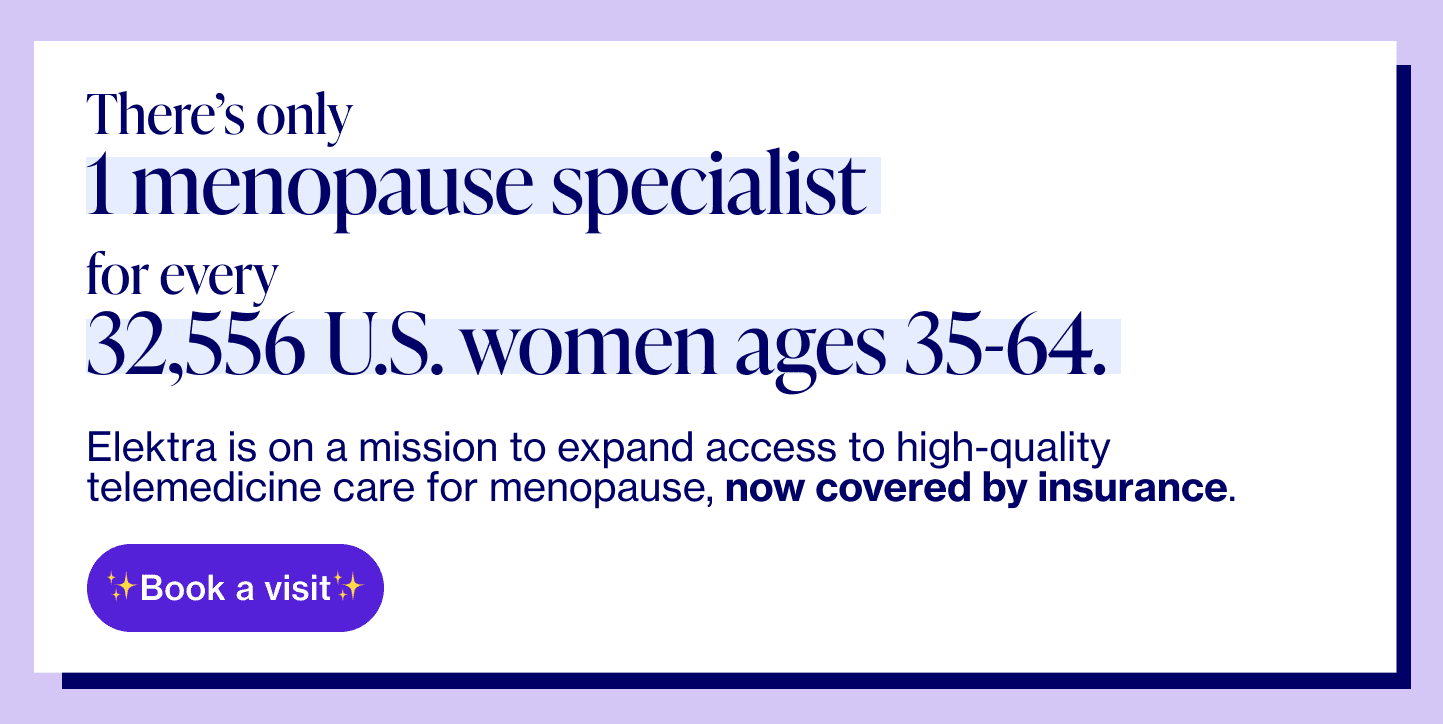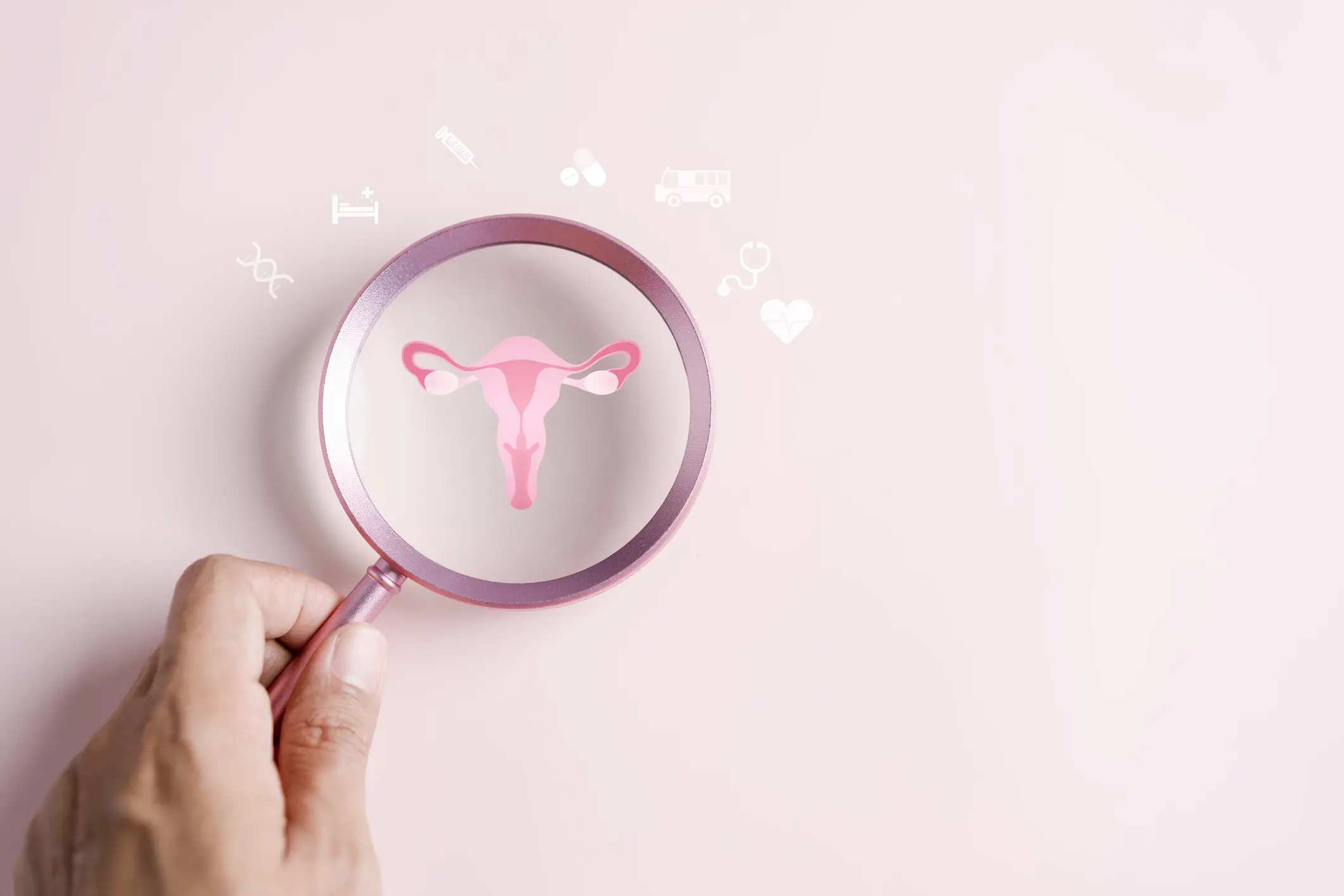
Published on Apr 04, 2023
Last modified on May 02, 2024
Can Menopause Cause Depression? Your FAQs, Answered.
4 min read
Research shows that an estimated 38% of women in late perimenopause develop symptoms of depression — a staggeringly high figure considering just how many women are navigating menopause in the US right now (50 million). Below, our resident women’s health professionals weigh in on frequently asked questions about the link between menopause and depression, risk factors, what hormonal changes have to do with it, and more.
Anxiety vs depression…what’s the difference?
While anxiety causes feelings of nervousness/worry and dread, clinical depression typically manifests as feelings of sadness/depressed mood, hopelessness, difficulty concentrating, loss of interest in things you once enjoyed, worthlessness, and reduced energy levels. Note, however, that’s it’s unfortunately not an either-or…it is possible to have both at the same time.
Major depressive disorder is diagnosed when symptoms are persistent, causing significant impairment to daily life.
When do symptoms of depression typically pop up during the menopause transition?
Women between the ages of 40 and 55 are more likely to report depressive symptoms than premenopausal or postmenopausal women, suggesting that the highest risk for new-onset depression is during the transition into menopause, not during postmenopause.
What complicates things further about so-called “perimenopausal depression” is the fact that women experience a flurry of other physical symptoms during these years, including hot flashes/night sweats and sleep disturbances. These can overlap and complicate the presentation of depression, leading some researchers to believe that there may be a correlation (not causation) between the two.
What do hormonal fluctuations have to do with it?
Spoiler alert: a lot.
Like most other symptoms, depression can be associated with fluctuating hormone levels, specifically estrogen, progesterone, and serotonin (these same fluctuations also help explain why mood changes pop up as PMS symptoms, too).
- Estrogen & serotonin
The production of estrogen is correlated with the action of serotonin, a neurotransmitter that acts as our “happy hormone” by reducing anxiety and fostering feelings of well-being. So as estrogen levels fluctuate during the menopausal transition, serotonin pathways can be disrupted, which can affect mood. - Progesterone & GABA
Progesterone is the “calming hormone” that may also influence Gamma-Aminobutyric acid, or GABA for short. GABA is a neurotransmitter that produces a calming effect when it binds to its receptors. Progesterone increases the effects of GABA, so lower progesterone levels during perimenopause and menopause may result in less GABA-like activity, which increases the chances of mood swings, anxiety, and sleeplessness.
So…ultimately menopause is the culprit?
Menopause-related hormone fluctuations can be a contributing factor, but it’s important to keep in mind that like anxiety and mood changes, depression during this time of life can also occur for reasons other than menopause. There are so many factors at play here that are difficult to discern: socioeconomic considerations, psychological, social, health conditions, etc. Plus, let’s not forget that we’re dealing with our fair share of life stressors during this transition. Maybe we’re caring for children or aging parents, navigating career shifts, or struggling with our changing bodies.
All of the above can adversely impact mood and should NOT be discounted as “par for the course.”
Are certain women at higher risk for perimenopausal depression?
We know that women are more prone to mood changes around menopause; however, research shows that certain women are at higher risk of depression than others.
- History of depression
Prior depression has been associated with an 11.91 times “higher hazard” of perimenopausal depression compared to those with no history of depression. The numbers are even higher for those with a history of postpartum depression (12.82 times higher). - Oopherectomy
Those who have undergone an oophorectomy (removal of ovaries) before natural menopause have an even higher probability of depression with more severe and longer-lasting symptoms.
READ MORE:
- Surgical Menopause Symptoms: What To Expect
- How Long Do Surgically-Induced Menopause Symptoms Last?
- Navigating Life After Surgical Menopause: What To Know & How To Prepare
This underscores just how important mental health education is for all women. Taboos have NO place here.
Depressive symptoms vs depressive episodes…is there a difference?
Symptoms may be sporadic and come and go over time, while episodes are when symptoms occur most of the day and nearly every day.
I’ve heard a lot about SSRIs…do they help?
SSRIs and SNRIs remain the first line of pharmacologic defense for anxiety and depression in peri- and menopausal women.
- SSRIs: Selective serotonin reuptake inhibitors
- SNRIs: Serotonin and norepinephrine reuptake inhibitors
These neurotransmitters are antidepressants that work by regulating serotonin (the “happy hormone” that controls mood) and norepinephrine (plays a key role in the body’s “fight-or-flight” response to stress). It should be noted that common side effects include weight gain and low libido, which themselves are common symptoms of menopause.
What about hormone replacement therapy (HRT)?
Hormone therapy is a viable treatment option for women with elevated depressive symptoms who have been screened for common risk factors. Oral contraceptive pills are typically prescribed for early-late perimenopause, while hormone replacement therapy (HRT) is prescribed for late perimenopause-menopause.
Estrogen therapy alone is not approved to treat perimenopausal depression; however, there is evidence that it has antidepressant effects, particularly for those suffering from vasomotor symptoms (e.g., hot flashes and night sweats).
READ MORE:
- Hormone Therapy For Depression…Does It Help Or Hurt?
- Elektra Guide To Hormone Replacement Therapy (HRT)
When (and how) should I seek professional support?
There are certainly steps that we can take to help reduce symptoms of depression, lifestyle changes included (nutrition/diet, exercise, exposure to nature, stress reduction, gratitude practices, sleep optimization, etc). Psychotherapy approaches (cognitive behavioral therapy and interpersonal therapy) can also be explored.
However, severe mood disorder symptoms that prevent you from functioning, disrupt relationships, and are associated with suicidal thoughts need medical attention from a trained healthcare professional — there is nothing shameful about it. In situations of major depression, urgent medical care and even pharmacologic therapy may be appropriate first steps to care for your mental and physical health.
If you’re experiencing an emergency and need immediate help, call 911 or go to the nearest emergency room.
Suicide Prevention Lifeline
+ 1-800-273-8255
Crisis Text Line
Text HOME to 741741



